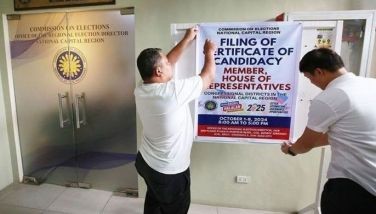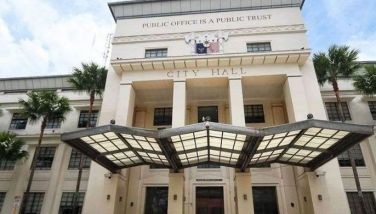To fund socialized housing: Official proposes additional taxes
CEBU, Philippines - Over P150 million a year can be made available for socialized housing projects and programs if the Cebu City Government will impose the half percent Socialized Housing Tax mandated under the Urban Development and Housing Act (UDHA) of 1992.
Division for the Welfare of the Urban Poor Chief Collin Rossell said that he is set to discuss this with the Local Housing Board and will immediately request the city council to craft an ordinance that will authorize the imposition of the SHT.
The SHT is mandated under Section 43 of Republic Act 7279 or the UDHA, which says that “all local government units are authorized to impose an additional one-half percent (0.5%) tax on the assessed value of all lands in urban areas in excess of P50,000.”
This will be an additional tax to be imposed on all real property owners, whose properties have an assessed value of more than P50,000.
The assessed value is the product of the real property’s fair market value and its assessment level.
The assessment level for lands varies depending on its use, whether for commercial, residential or agricultural.
Cebu City imposes an assessment level of 10 percent for commercial lots, 4.5 percent for agricultural lands and two percent for residential lots.
The real property tax is the sum of the assessed value plus the two percent basic tax and one percent Special Education Fund (SEF).
If permitted, the SHT will be in addition to the SEF.
The guidelines for the implementation of SHT are provided under Local Finance Circular No. 1-97 issued by the Department of Finance in April 10, 1997.
The SHT just like the SEF is payable in four equal quarterly installments.
Rossell said that the fact that the city did not implement it since the UDHA was crafted in 1992 could mean that the city has enough funds for its socialized housing programs.
“But looking at the city’s current situation, it is the other way around. We always hear our officials say that we don’t have the funds to improve our socialized housing programs. I believe it is high time that we implement the collection of the socialized housing tax,” Rossell said.
Once they implement the SHT, the city is set to earn additional P150 million in real property taxes yearly, which shall accrue to a Special Account because it may only be utilized for specific purposes.
Circular No. 1-97 provides that the Local Government Unit can utilize the SHT for land purchasing and land banking, improvement of current social housing facilities, land development, construction of core houses, sanitary cores, medium-rise buildings and other similar structures and financing or joint-venture agreement between LGUs and the National Housing Authority or the private sector.
The local assessor is tasked to undertake an inventory of lands within its jurisdiction which shall be subject to the levy of the SHT.
Rossell said that once the SHT is implemented, the city government can use 10 years worth of collection as a guarantee to loan P1 billion for implementation of projects to alleviate the lives of the urban poor.
He said the imposition of SHT should not be hard because it is already mandated under the law.
Councilor Alvin Dizon, Chairman of the Committee on Housing, said that such proposal is a sound idea but needs thorough examination before an ordinance will be drafted.
Dizon said that anything that will mean additional burden to the tax payers is sure to gain opposition from the different sectors affected so they must study first its implication to the entire city.
“It’s one good revenue generation strategy worth pursuing but we have to consult the different sectors first,” Dizon said.
Dizon said that they must study its feasibility within the local housing board level.
“But we should not focus on this alone. We can also impose idle tax for real properties that are not being used,” Dizon said.
He said the city must also compel developers to apportion 20 percent of their total project value for socialized or low-cost housing programs. This is mandated under the Balance Housing Requirement of UDHA.
Cebu City Mayor Michael Rama said that the proposal is a sound idea, but it still has a long way to go. He said generating funds to improve the status of the urban is an urgent concern but they will have to study carefully any proposal that would affect the majority.
For the meantime, he said, the city may depend on the assistance from the national housing agencies for the various housing programs.
The City Assessor’s Office is also proposing a 20 percent increase in the real property taxes imposed against 218,156 real property units registered in the city.
The city earns more or less P600 million a year from Real Property Taxes which is one of the city’s major revenue sources. –/NLQ (FREEMAN)
- Latest
- Trending





















